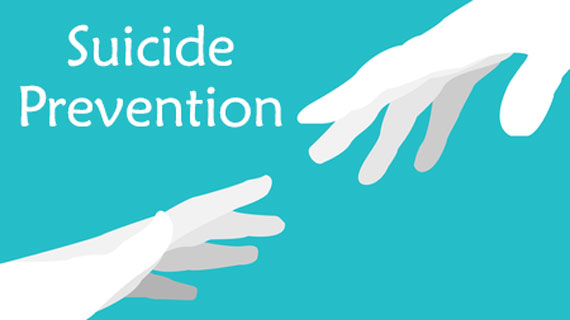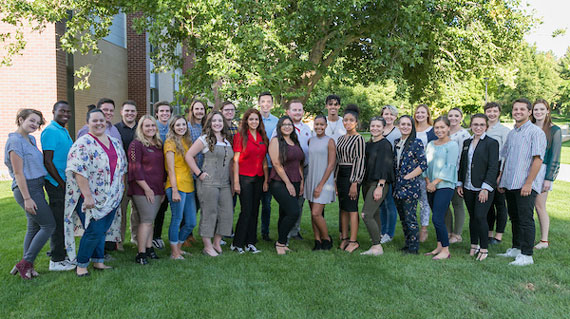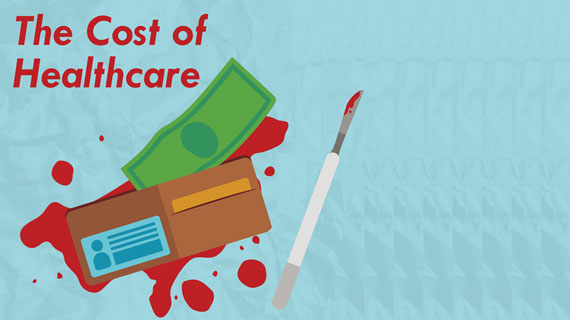Pizza & Politics - Suicide Awareness
Posted: September 25, 2018 | Author: Cami Mathews | Read Time: 4 minutes
 The Michael O. Leavitt Center for Politics and Public Service hosts Pizza & Politics every Wednesday at noon to discuss a current political topic. Leavitt Center student employees research the topic and moderate the conversation. These discussions expose students to a variety of important issues and encourages them to share their own perspectives while learning all sides of an issue. Free pizza is provided for all who attend.
The Michael O. Leavitt Center for Politics and Public Service hosts Pizza & Politics every Wednesday at noon to discuss a current political topic. Leavitt Center student employees research the topic and moderate the conversation. These discussions expose students to a variety of important issues and encourages them to share their own perspectives while learning all sides of an issue. Free pizza is provided for all who attend.
Suicide awareness is both a sensitive and important topic to discussion. According to the National Violent Death Reporting System (NVDRS), 54% of suicides were by people with no diagnosed mental health condition. Suicide is the second leading cause of death for people aged 10-24 in the U.S. and 800,000 people per year globally. Nearly 45,000 suicides occurred in the U.S. in 2016, more than twice the number of homicides.
The conversation was moderated by Morgan Barney and Logan Platt. Morgan is a senior Spanish major with a minor in Creative Writing and Legal Studies from Hatch, Utah. Logan is a senior Biology major with a minor in Outdoor Recreation and Sustainability from South Ogden, Utah. Both are members of the Leavitt Center Executive Council.
What can we do as a nation to prevent suicide?
Students immediately put their hands in the air with ideas on how to prevent suicide. Thoughts ranged from increased funding for mental health services, to allocating funds specifically to at-risk groups like LGBTQIA+ youth. The common theme was throwing more money at the cause.
In 2018, the National Suicide Hotline Improvement Act was signed in August. The bill required the FCC to provide a three digit number for the hotline. In a sample of suicide hotline callers from 2010, 12% said the call had kept them from harming themselves, one-third made an appointment with a mental-health professional, 43% reported having felt suicidal while 3% made a suicide attempt since the call.
Is the suicide hotline effective enough to warrant an increase in funding?
The first comment said an increase in funding is always fine if it means there is a chance to save a life. Most people agreed with that statement, saying that a human life does not have a price tag. Students were split on where the funding should originate from. A group thought the federal government should step in because it is a national crisis, while another group said states would be better at solving the problem.
Speaking of a state level, Utah is in the top five states for suicide rates; 21.8 suicides per 100,000 persons. In 2012, the Jason Flatt Act was adopted by Utah and 19 other states. This requires teachers to have two hours of youth suicide prevention training per license cycle. In 2015, the Suicide Prevention Amendments allocated more funding to the State Board of Education for suicide prevention in middle and high schools. The latest attempt to help with suicide in Utah was with Suicide Prevention Programs in 2017. These programs allocated funds to hire a psychological autopsy examiner to investigate suicidal deaths. The programs also allowed schools up to $500 in grant money to expand suicide prevention programs.
Is the state of Utah doing enough to prevent suicides?
Not one person thought that the state of Utah was doing enough to prevent suicides. However, when asked about allocating funds and resources, people were split on the delivery. Some said that resources should be given to at-risk groups, such as LGBTQIA+ youth. Others felt that funds should be used across the board, creating helpful resources for everyone. The students felt that suicide prevention is a key issue in Utah, some just felt that efforts should start on smaller levels than others.
On a very local level, Southern Utah University has CAPS and CAST as student resources. CAPS, Counseling and Psychological Services, is funded by student fees. The organization employs 12 staff members. CAST, Care and Support Team, is a network of faculty and staff that receive training on ways to support students that do not require professional mental health care.
Would you support an increase in student fees for CAPS and CAST?
Currently, CAPS receives $20 of student fees per semester; CAST receives $0. All students stated their support for more funds being given to both resources. When comparing student fees, $15 goes to the Southern Utah Museum of Art and $32 for access to student computers. Audience members discussed that mental health was more important than both of those resources, saying fees should be increased or taken from other departments.
Overall, the discussion was civil and educational. For being a difficult topic to discuss, many students felt safe and able to share their opinions. More information on Pizza & Politics and Leavitt Center events can be found on their Facebook page.
This article was published more than 3 years ago and might contain outdated information or broken links. As a result, its accuracy cannot be guaranteed.
Tags: Student Leavitt Center




